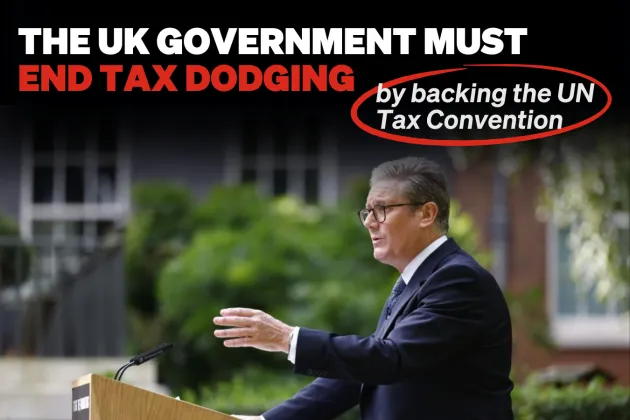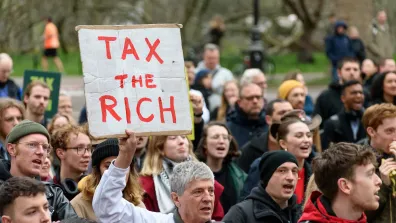Why we need to fix global tax rules!
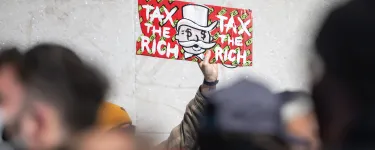
Rich multinational corporations get away with paying very little tax because our current tax rules enable tax dodging on a phenomenal scale. For example, currently corporations can register their profits or intellectual property in low-tax countries or jurisdictions, where a corporation’s profits are then taxed at much lower rates – if at all – than in the country where the profits were made. Corporations move billions out of countries in this way to avoid paying tax, increasing their profits for rich shareholders.
This corporate tax dodging deprives countries of tax revenue needed to fund hospitals, schools, and social care, and to tackle the climate and cost-of-living crises. Meanwhile, it's working people who disproportionately bear the tax burden – and foot the bill – while experiencing collapsing public services.
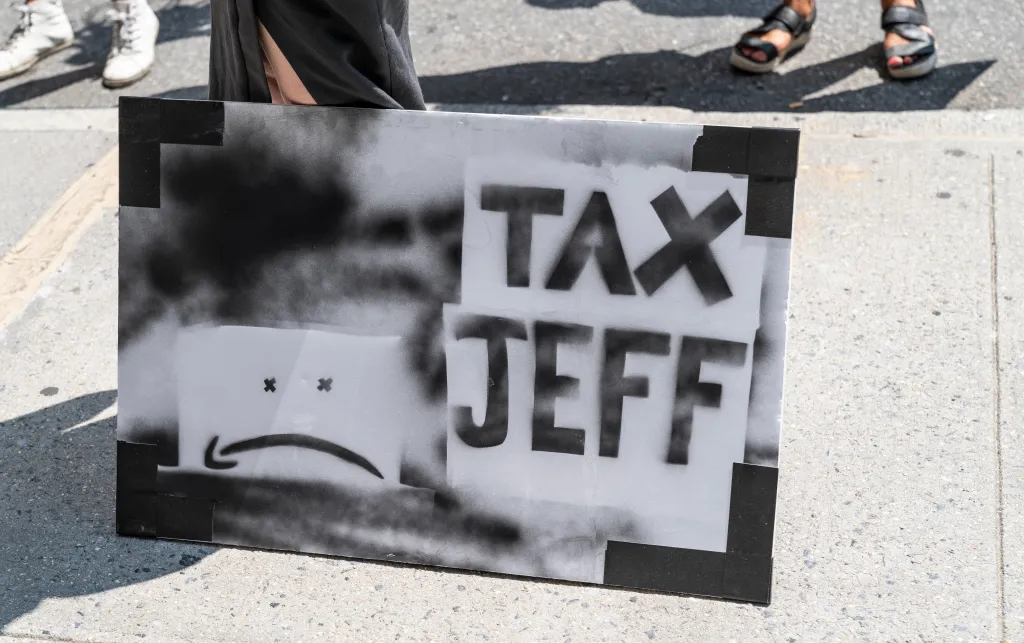
Tax rules set by the rich
For decades, decisions on global tax rules and policy have been dominated by a small number of wealthy countries, which make up the Organisation for Economic Cooperation and Development (OECD). The UK was a founding member of this club of overwhelmingly rich Global North countries, with members including the United States, Canada, France and Germany.
The OECD has held back progress on corporate taxation and advanced tax models that disadvantage Global South countries. For instance, in 2021, the OECD introduced the so-called 15% minimum-corporate tax rate, which in no way reflected the priorities of Global South countries or their civil society allies, who were demanding a minimum of 20%-25% corporate tax. Poorer Global South countries largely do not benefit from this policy as the countries that house corporate headquarters (usually in the Global North) are granted priority in collecting this tax revenue.
The OECD’s tax rules have been a disaster for ordinary people everywhere, but especially for those living in poorer Global South countries — where governments are struggling to provide basic public services and respond to the climate crisis. The OECD’s global taxation policies have facilitated an incredible transfer of wealth from the poorest to the richest.
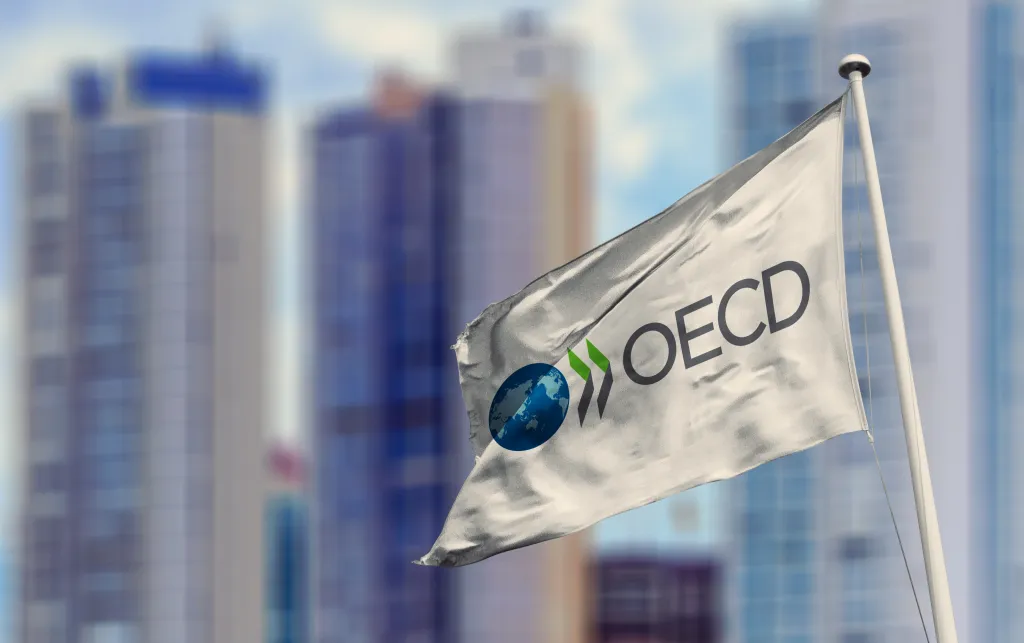
Profits increase, taxes decrease
Corporate profits have quadrupled over the past four decades, as corporate tax rates have dropped, while less and less of these vast profits are reinvested in national infrastructure, or social care programmes.
In 1980, the worldwide average corporation tax rate was 39%. By 2019 it had dropped to just 23%. At the same time, the proportion of corporate profits shifted into tax havens has skyrocketed from 2% in the 1970s to over 37% by 2019 — that’s around US $1 trillion each year in corporate profits dodging fair taxation. OECD countries are responsible for facilitating over 75% of this global tax loss, by providing legal loopholes for wealthy corporations operating in their territories. This corporate tax dodging is having devastating consequences for Global South countries, whose tax losses are equivalent to over half their total public health budgets.
Those of us who rely on public services in Global North countries also lose out. The UK loses around £44 billion in tax every year. That’s money that could be used to fund the NHS and social care, education, the energy transition, and contribute to the UK’s fair share of climate adaptation financing for poorer Global South countries most affected by climate breakdown. Instead, this lost tax revenue goes straight into the pockets of the super-rich, leaving ordinary people to pay for collapsing public services.
Ending corporate tax dodging
We can’t afford this failed tax system. We need a new set of rules, and a global, democratic governance system for tax. Global South countries are already leading the way to a more just system, through a new initiative to bring global tax rules under the remit of the United Nations (UN) .Bringing global taxation rules under the remit of the UN would be a huge step towards a fairer system, by allowing every country to have a say – and not just the exclusive club of wealthy Global North countries in the OECD.
In late November 2023, Global South countries secured an important victory, when states adopted a resolution that lays the groundwork for the establishment of a binding UN Convention on Tax. It aims to create the first truly global framework for international tax policy. It was adopted, despite most OECD countries including the UK, all EU countries and the US voting against it, and shamefully the UK government even tried to amend the text at the last minute in such a way that would have robbed the initiative of all ambition. War on Want is calling on the UK government to support the initiative, going forward in the important next steps to approve a budget and define a terms of reference for the initiative.
So far, the UK has been critical. Richer Global North countries like the UK, which are home to corporate headquarters, global stock markets and CEO and shareholder mansions, are stalling the initiative. The UK plays a leading role in the global tax-dodging system, allowing corporations to maximise their profits by utilising a web of tax havens in British crown dependencies and overseas territories. In fact, the UK is by far the world’s greatest enabler of global tax dodging1 , responsible for facilitating an estimated 35% of tax lost globally.
It is up to us to stand up for public health services, our schools and social care system, to stand in solidarity with the Global South, and demand the UK government acts to end the corporate tax dodging.
Share this page
- 1//taxjustice.net/wp-content/uploads/SOTJ/SOTJ23/English/State%20of%20Tax%20Justice%202023%20-%20Tax%20Justice%20Network%20-%20English.pdf
